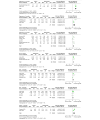Effectiveness of Digital Behavioral Activation Interventions for Depression and Anxiety: Systematic Review and Meta-Analysis
- PMID: 40526910
- PMCID: PMC12227033
- DOI: 10.2196/68054
Effectiveness of Digital Behavioral Activation Interventions for Depression and Anxiety: Systematic Review and Meta-Analysis
Abstract
Background: As digital interventions gain prominence in mental health care, they present opportunities to improve access and scalability. Despite their potential, the overall impact of digital behavioral activation (BA) interventions across different formats and populations is not yet fully understood.
Objective: This systematic review examines the characteristics and functions of digital BA interventions and evaluates their effectiveness for mental health and other patient-related outcomes.
Methods: A comprehensive search of databases (PubMed, Embase, Web of Science, APA PsycInfo, and ClinicalTrials.gov) was performed in November 2023 to identify randomized controlled trials (RCTs) assessing the effectiveness of digital BA interventions for depression and anxiety. A total of 2 reviewers screened the studies for inclusion. Meta-analysis using a random-effects model assessed intervention impact on outcomes including depression, anxiety, quality of life (QoL), BA scores, functioning and disability, and stress. Statistical heterogeneity was evaluated with the I² statistic and statistical significance was evaluated with P values. Studies that did not meet the meta-analysis criteria underwent narrative synthesis.
Results: A total of 18 articles reporting 17 RCTs were included across three intervention types: (1) internet-based BA (n=12, 71%), delivering digital therapies to foster new behavioral activities for depression management; (2) electronic messaging-based BA (n=2, 12%), involving prompts to support behavior change; and (3) telehealth-based BA (n=3, 17%), providing remote health care services. We identified single-component and multicomponent interventions that combined BA with elements such as problem-solving therapy or cognitive behavioral therapy. A total of 12 RCTs were included in the meta-analysis, while the remaining studies were narratively synthesized. Risk of bias (RoB) was assessed in all included studies. Digital BA interventions significantly reduced depressive symptoms at 2 months (P<.001, I²=0%), 3 months (P=.001, I²=51%), and 6 months (P=.009, I²=29%) post treatment, but not at 12 months (P=.82, I²=89%). Significant improvements in BA scores at 6 months were observed (P<.001, I²=0%). QoL improved significantly at 3 months (P=.002, I²=22%) and 6 months (P=.009, I²=0%). Stress levels were also significantly reduced at 3 months (P<.001, I²=25%). However, no significant changes were identified in anxiety and functioning and disability outcomes at either 3 months (anxiety: P=.08, I²=68%) or 6 months (anxiety: P=.24, I²=44%; functioning and disability: P=.88, I²=90%). Across included studies, RoB was generally low, particularly for random sequence generation and allocation concealment.
Conclusions: Digital BA interventions are effective in reducing depressive symptoms and improving QoL in the short- to midterm. However, these effects tend to diminish over time with no sustained benefits observed at 12 months. Future research should focus on developing and testing interventions with greater long-term efficacy, clarifying the role of BA within multicomponent digital approaches, and identifying the optimal intervention "dose" needed to maintain lasting effects.
Keywords: anxiety; behavior; behavior change; cognition; cognitive; cognitive behavioral therapy; databases; depression; digital behavioral activation; digital health; digital intervention; disability; eHealth; effectiveness; health care; internet-based behavioral activation; mental health; meta-analysis; psychotherapy; quality of life; remote health care; stress; systematic reviews; telehealth; therapy.
©Eric Jia, Jushawn Macon, Michelle Doering, Joanna Abraham. Originally published in the Journal of Medical Internet Research (https://www.jmir.org), 17.06.2025.
Conflict of interest statement
Conflicts of Interest: None declared.
Figures



Similar articles
-
Music-based therapeutic interventions for people with dementia.Cochrane Database Syst Rev. 2025 Mar 7;3(3):CD003477. doi: 10.1002/14651858.CD003477.pub5. Cochrane Database Syst Rev. 2025. PMID: 40049590
-
Psychological therapies for the treatment of mental disorders in low- and middle-income countries affected by humanitarian crises.Cochrane Database Syst Rev. 2018 Jul 5;7(7):CD011849. doi: 10.1002/14651858.CD011849.pub2. Cochrane Database Syst Rev. 2018. PMID: 29975811 Free PMC article.
-
E-Health interventions for anxiety and depression in children and adolescents with long-term physical conditions.Cochrane Database Syst Rev. 2018 Aug 15;8(8):CD012489. doi: 10.1002/14651858.CD012489.pub2. Cochrane Database Syst Rev. 2018. PMID: 30110718 Free PMC article.
-
Psychological interventions for coronary heart disease.Cochrane Database Syst Rev. 2017 Apr 28;4(4):CD002902. doi: 10.1002/14651858.CD002902.pub4. Cochrane Database Syst Rev. 2017. PMID: 28452408 Free PMC article.
-
Technological aids for the rehabilitation of memory and executive functioning in children and adolescents with acquired brain injury.Cochrane Database Syst Rev. 2016 Jul 1;7(7):CD011020. doi: 10.1002/14651858.CD011020.pub2. Cochrane Database Syst Rev. 2016. PMID: 27364851 Free PMC article.
References
-
- Delpino FM, da Silva CN, Jerônimo JS, Mulling ES, da Cunha LL, Weymar MK, Alt R, Caputo EL, Feter N. Prevalence of anxiety during the COVID-19 pandemic: a systematic review and meta-analysis of over 2 million people. J Affect Disord. 2022;318:272–282. doi: 10.1016/j.jad.2022.09.003. https://europepmc.org/abstract/MED/36096370 S0165-0327(22)00998-3 - DOI - PMC - PubMed
-
- Proudman D, Greenberg P, Nellesen D. The growing burden of major depressive disorders (MDD): implications for researchers and policy makers. Pharmacoeconomics. 2021;39(6):619–625. doi: 10.1007/s40273-021-01040-7. https://europepmc.org/abstract/MED/34013439 10.1007/s40273-021-01040-7 - DOI - PMC - PubMed
-
- Brenes GA. Anxiety, depression, and quality of life in primary care patients. Prim Care Companion J Clin Psychiatry. 2007;9(6):437–443. doi: 10.4088/pcc.v09n0606. https://europepmc.org/abstract/MED/18185823 - DOI - PMC - PubMed
-
- Wilmer MT, Anderson K, Reynolds M. Correlates of quality of life in anxiety disorders: review of recent research. Curr Psychiatry Rep. 2021;23(11):77. doi: 10.1007/s11920-021-01290-4. https://europepmc.org/abstract/MED/34613508 10.1007/s11920-021-01290-4 - DOI - PMC - PubMed
Publication types
MeSH terms
Grants and funding
LinkOut - more resources
Full Text Sources
Medical
Research Materials

